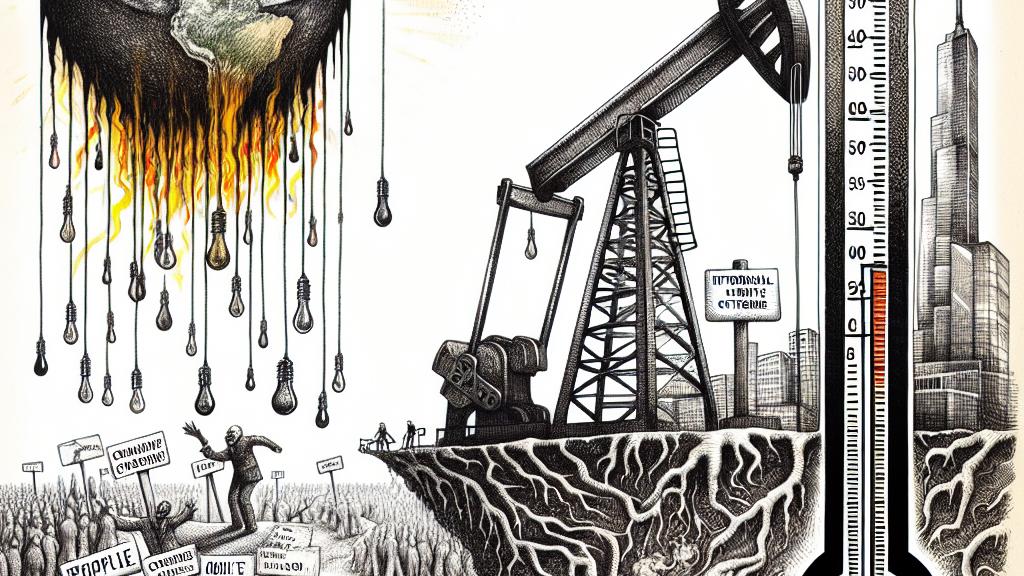Understanding Climate Change and Energy Policies
Overview
- Delve into the profound impact of Trump's rejection of net-zero commitments.
- Explore the complex geopolitical landscape that surrounds fossil fuel production.
- Emphasize the urgent need for consistent, science-based targets to fight climate change.

Trump's Rejection of Climate Agreements
In a stunning turn of events, former President Donald Trump's decision to reject net-zero commitments has reshaped the climate action narrative in the United States. His rallying cry, “Drill, baby, drill,” symbolizes not just a shift but a complete pivot towards prioritizing fossil fuel dominance over meaningful environmental engagement. By pulling out of vital global accords like the Paris Agreement, Trump positioned the U.S. to emerge as a colossal producer of oil and natural gas, effectively sidelining critical discussions on climate change. This unsettling shift doesn't just risk elevating global temperatures; it sends shockwaves through international climate strategies. Nations worldwide are now left scrambling to reassess their own commitments, fearing that without U.S. leadership, the collective resolve to address climate issues may dwindle. For example, several countries may hesitate to pursue aggressive climate policies, fearing economic repercussions from standing alone against fossil fuel interests.
The Geopolitical Landscape of Energy
Consider the fascinating dynamics that arise as the U.S. aggressively develops fossil fuels, particularly in regions like Alaska. By positioning itself as a competitor to traditional energy giants like Russia and Saudi Arabia, it alters the global energy marketplace. This competition does not merely revolve around energy security; it's about setting the future of global energy politics. Take a look at Japan and South Korea, for instance; these nations might reconsider their energy import strategies, favoring U.S. oil over Middle Eastern supplies due to perceived reliability and geopolitical alignments. This shift raises crucial questions about environmental responsibility while deepening the link between national security and climate policies. Ultimately, economic motives often overshadow environmental considerations in this fierce struggle for dominance.
The Imperative for Science-Based Climate Action
Amidst these developments, the lack of a cohesive definition for 'net-zero' has muddied the waters, complicating the quest for impactful climate action. Thankfully, the Science Based Targets Initiative (SBTi) offers a crucial framework that guides companies in setting credible net-zero targets. This framework ensures that commitments align with solid scientific foundations, reflecting the real urgency of our climate crisis. As experts highlight, having clear, science-based targets is not just important; it’s essential for maintaining public trust and diminishing the threat of greenwashing—where companies inflate their environmental achievements. Remarkably, over 1,170 companies have taken the step to commit to net-zero targets, demonstrating an undeniable shift towards greater accountability. This movement illustrates that even amidst political turbulence, corporate responsibility can play a stalwart role in propelling urgent actions needed to combat climate change effectively. As we witness this shift, it’s clear that the time for serious climate action is now!

Loading...